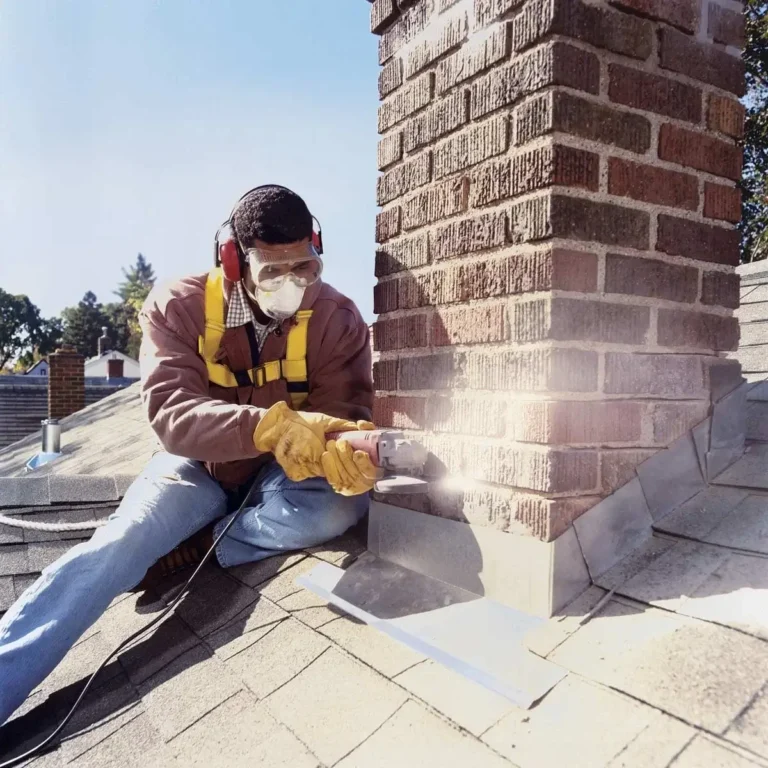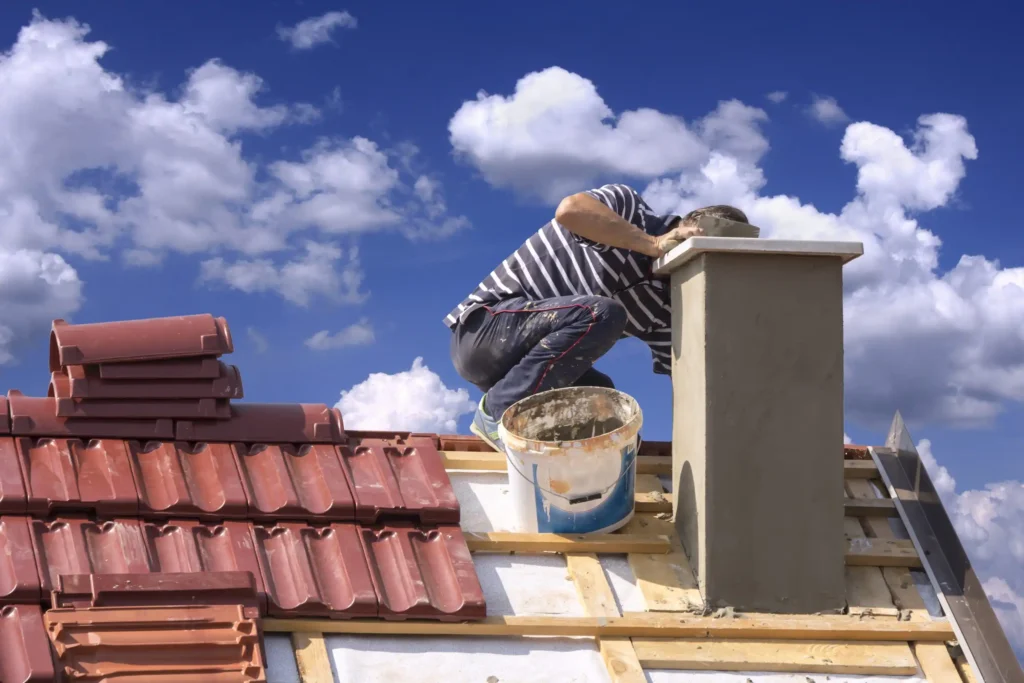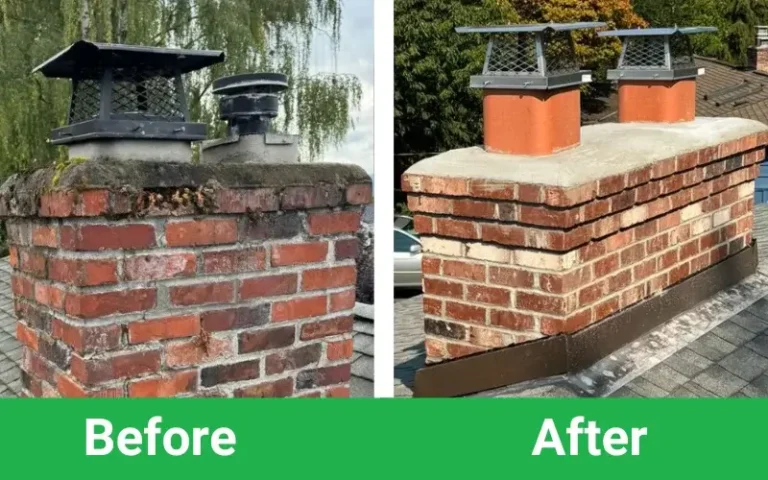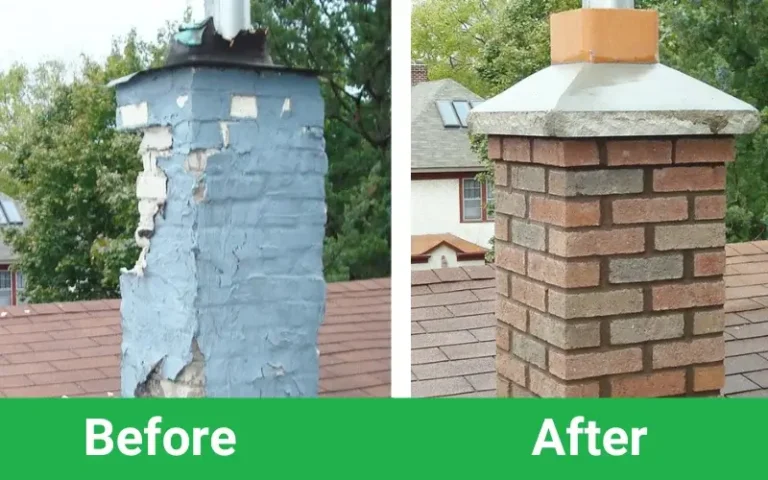Our Blog
The Top 5 Signs Your Chimney Needs Repair

Have you noticed something strange about your chimney lately? It’s easy to overlook the health of your chimney, especially when it seems to be functioning just fine. However, chimneys need regular care and maintenance to ensure they operate safely and efficiently. In this article, we’ll discuss the top five signs that your chimney needs repair. If you’re looking for chimney repair in Renton, WA, you’re in the right place. Let’s dive in and make sure your chimney is in tip-top shape.
Importance of Timely Chimney Repair
Maintaining your chimney is crucial for the safety of your home and family. A damaged chimney can lead to a variety of problems, from smoke damage to structural issues. Timely chimney repair helps to prevent minor problems from becoming major headaches. Not only does this save you money in the long run, but it also ensures that your chimney is safe to use.
When we neglect chimney maintenance, we risk a range of hazards. For example, cracks in the chimney can allow dangerous gases like carbon monoxide to enter your home. Water damage can lead to mold growth, which can affect the health of everyone in the household. Let’s take a look at some common signs that indicate your chimney needs attention.
Overview of Common Signs
Understanding the signs of a failing chimney can help you address issues before they become serious. Here are the top five signs that your chimney may need repair:
- Cracked or Damaged Masonry
- Water Damage
- Smoke Problems
- Unpleasant Odors
- Flue Issues
Let’s explore each of these signs in detail.
Cracked or Damaged Masonry
One of the most obvious signs that your chimney needs repair is cracked or damaged masonry. This can be identified by visible cracks in the bricks or mortar of your chimney. These cracks can occur due to various reasons such as weather conditions, age, and even seismic activity.
Identifying Visible Cracks
To spot cracks or damage in the masonry, take a close look at the exterior of your chimney. You might notice small lines or larger gaps in the bricks or mortar. Sometimes, you might even see pieces of brick or mortar that have fallen away. If you feel comfortable, you can also check the interior of your chimney with a flashlight to look for similar issues.
Risks Associated with Masonry Damage
Cracks in the masonry are not just cosmetic issues; they can lead to significant problems. Water can seep into these cracks, freeze, and expand, causing even more damage. Over time, this can weaken the structure of the chimney, making it unsafe. In extreme cases, the chimney can collapse, posing a serious risk to anyone nearby.
Another issue with cracked masonry is that it can allow harmful gases to escape into your home. This includes carbon monoxide, which is a colorless, odorless gas that can be deadly. Regular inspections can help you identify and address masonry damage before it becomes a serious problem.
Water Damage
Water damage is another common issue that can affect your chimney. Signs of water penetration include stains on the walls near the chimney, leaks, and even mold growth. If you notice any of these signs, it’s important to address them promptly to prevent further damage.
Signs of Water Penetration
When inspecting for water damage, look for discoloration on the walls near your chimney. These stains can be brown, yellow, or even green, indicating that water has been seeping through. Additionally, if you see water pooling around the base of your chimney or hear dripping sounds, you likely have a leak.
Consequences of Untreated Water Damage
If left untreated, water damage can lead to a host of problems. For one, it can weaken the structure of your chimney, making it more susceptible to collapse. Additionally, water can damage the interior of your chimney, including the chimney liner. This liner is crucial for protecting your home from the heat and gases produced by your fireplace.
Water can also cause the metal components of your chimney, such as the chimney cap, to rust and deteriorate. This can reduce the efficiency of your chimney and increase the risk of fire. By addressing water damage early, you can prevent these issues and keep your chimney in good working order.
Smoke Problems
If you notice smoke entering your home when you use your fireplace, this is a clear sign that your chimney needs repair. There are several potential causes for this issue, including blockages, poor draft, or damage to the chimney liner.
Smoke Entering the Home
One of the most alarming signs of chimney trouble is when smoke starts billowing into your living space instead of exiting through the chimney. This not only makes your home uncomfortable but can also pose serious health risks due to the inhalation of smoke and carbon monoxide.
Potential Causes and Solutions
One common cause of smoke problems is a blockage in the chimney. This can be due to a buildup of creosote, a byproduct of burning wood, or debris such as leaves and animal nests. A chimney sweep can help clear these blockages and improve the draft of your chimney.
Another potential cause is damage to the chimney flashing, which is the metal seal between your chimney and roof. If this flashing is damaged, it can allow air to enter the chimney, disrupting the draft and causing smoke to back up into your home. Repairing or replacing the flashing can help resolve this issue.

Unpleasant Odors
Unpleasant odors coming from your chimney are another sign that it may need repair. These odors can be caused by a variety of factors, including creosote buildup, mold, or even animal activity.
Causes of Chimney Odors
Creosote buildup is one of the most common causes of chimney odors. This substance has a strong, smoky smell that can be quite unpleasant. Regular chimney cleaning can help prevent creosote buildup and reduce odors.
Mold is another potential cause of chimney odors. If your chimney has water damage, it can create the perfect environment for mold to grow. This can produce a musty smell that can permeate your home. Addressing water damage and ensuring proper ventilation can help prevent mold growth.
Animal activity can also cause unpleasant odors. Birds, squirrels, and other animals can make nests in your chimney, and their droppings can produce a foul smell. Installing a chimney cap can help keep animals out and reduce odors.
Importance of Addressing the Issue
Ignoring unpleasant odors coming from your chimney can lead to more serious problems down the line. For example, creosote buildup not only smells bad but is also a fire hazard. Mold growth can impact indoor air quality and lead to health issues such as respiratory problems. By addressing the root cause of the odor, you can ensure that your chimney is safe and clean.
Flue Issues
The flue is a critical component of your chimney system. It is responsible for directing smoke and gases out of your home. If your flue is damaged, it can compromise the efficiency and safety of your chimney.
Signs of Flue Damage
Signs of flue damage include cracks, rust, and missing sections of the chimney liner. These issues can allow smoke and gases to escape into your home, posing a health risk. Additionally, a damaged flue can reduce the efficiency of your chimney, making it harder to maintain a comfortable temperature in your home.
Importance of a Well-Functioning Flue
A well-functioning flue is essential for the safe operation of your chimney. It helps to ensure that smoke and gases are properly vented out of your home, reducing the risk of carbon monoxide poisoning. Additionally, a well-maintained flue can improve the efficiency of your chimney, helping you to save on heating costs.
Regular inspections and maintenance can help ensure that your flue is in good condition. If you notice any signs of damage, it’s important to address them promptly to prevent further issues.
Conclusion
Maintaining your chimney is essential for the safety and comfort of your home. By keeping an eye out for these common signs of chimney damage, you can address issues before they become serious problems. Remember, timely chimney repair can save you money in the long run and ensure that your chimney is safe to use.
Regular inspections and maintenance are key to keeping your chimney in good working order. If you need chimney repair in Renton, WA, don’t hesitate to reach out to the professionals at Chimneyz. We’re here to help you keep your chimney in top shape.
Frequently Asked Questions
How often should I have my chimney inspected?
We recommend having your chimney inspected at least once a year. This helps to identify and address any issues before they become serious problems.
What is the purpose of a chimney cap?
A chimney cap helps to keep debris, rain, and animals out of your chimney. It also helps to prevent downdrafts, which can cause smoke to enter your home.
What are the signs that my chimney liner needs replacement?
Signs that your chimney liner may need replacement include cracks, rust, and missing sections. A damaged liner can compromise the safety and efficiency of your chimney.
How can I prevent creosote buildup in my chimney?
Regular chimney cleaning and using dry, seasoned wood can help prevent creosote buildup. It’s also important to ensure that your chimney has proper ventilation.
What should I do if I notice water stains on my chimney?
If you notice water stains on your chimney, it’s important to address the issue promptly. Water damage can weaken the structure of your chimney and lead to mold growth. Contact a professional for chimney repair services.
Why is chimney flashing important?
Chimney flashing helps to seal the gap between your chimney and roof, preventing water from entering your home. Damaged flashing can lead to water damage and reduced chimney efficiency.
Can animals get into my chimney?
Yes, animals such as birds and squirrels can make nests in your chimney. Installing a chimney cap can help keep animals out and protect your chimney.
How do I know if my chimney needs a chimney sweep?
If you notice smoke problems, unpleasant odors, or creosote buildup, it’s time for a chimney sweep. Regular sweeping can help keep your chimney clean and safe to use.






